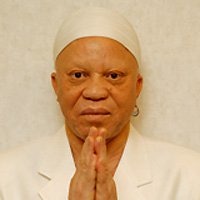Graham Reid | | 1 min read

The man often referred to as "the Golden Voice of Africa" (and that doesn't mean he's that continent's John Farnham) has had quite an extraordinary career.
He was born in Mali and was a direct descendant of Sundiata Keita, the founder of the nation. Which meant that as one of royal lineage he was well above being a griot (a court singer/conscience-cum-town crier to the royal family).
But he was born albino and was denied by his family -- and so left town and joined a band. Not an uncommon path in most cultures, but he also had the talent and good luck to join the increasingly famous Super Rail Band in the late 60s.
From there he moved through a couple of versions of Les Ambassadeurs in the 70s, fled Africa due to political unrest, and by the mid-80s was in Paris where he was championed by the West African ex-pat community and increasingly came to the attention of "world music" aficionados.
Since then he has recorded on a number of well-placed international labels (Mango, Blue Note, Capitol and Universal among them) but his label-hopping also suggests something else: while people at big record companies like him they don't know how to market this emotionally direct, often woozy and wonderful music -- perhaps because it is sung in a language commonly called "foreign"?
Salif Keita has a voice which shifts from deep personal emotion to often amusing pop, and that is enough.
Salif Keita is a star, no question.







post a comment